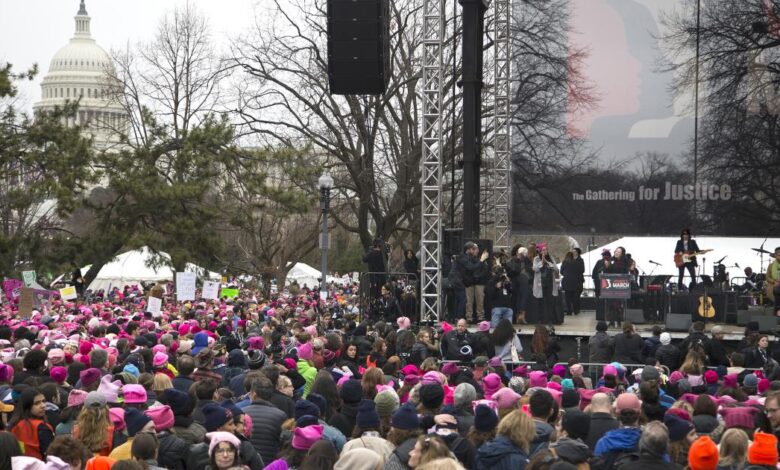The March for Equity, the Environment, and Women Are One, Says This Advocate

[ad_1]
Just about a year ago, the United States saw the largest single-day demonstration in its history. The groundbreaking Women’s March on Washington (for which NRDC was a presenting partner) united millions of advocates for human rights, environmental justice, and other causes. The remarkable event came together after about 10 weeks of organizing that began in response to the election of Donald Trump and the anti–human rights, anti-environment, and anti-women values he espoused. But it’s worth noting, as NRDC project manager Sasha Forbes does, that females have been spearheading the movement for the environment for decades.
“Women across the globe have been leading environmental work for generations and will continue to lead,” she says. “We have been conditioned from birth to fight, because we are stewards of our homes, communities, and neighborhoods and because of the interaction we have with nature and the earth.”
Forbes is one of those community builders, and one of those fighters. Of all the places where she’s lived, including Jamaica and New York as a child and later Ghana, Washington, D.C., and South Florida, where she currently resides, she’s been quick to settle in and find sister advocates in her quest for justice. In the many urban centers she’s called home, she notes, low-income communities of color face the same basic struggles—unaffordable housing, racial and economic inequality, lack of viable transportation options, and disproportionate exposure to pollution, to name a few. She also knows that the people challenging these inequities are often women, many coming from low-income areas and communities of color.
Forbes joined NRDC’s Urban Solutions team in 2014 specifically to support the residents of these frontline communities. Armed with broad experience in urban planning—from private, local-level projects in Florida to international work in Ghana—she is helping change the shape of the environmental movement. Increasingly, she notes, “the environmental fight includes the fight for climate justice, the fight for housing justice for those suffering displacement, and the fight for health justice for those continuing to suffer impacts from environmental degradation and pollution in their communities.”
Guided by the mentorship of her colleague Shelley Poticha, first at the Washington, D.C.–based organization Reconnecting America and now within NRDC’s Resilient Communities program, Forbes has found a way to connect these dots. Working with a range of partners, she and Poticha integrate advocacy for affordable housing, equity in decision making, and access to healthy food and safe and affordable transportation, with issues more traditionally thought of as environmental values, such as lowering urban emissions and supporting a city’s climate resilience.
[ad_2]
Read More



